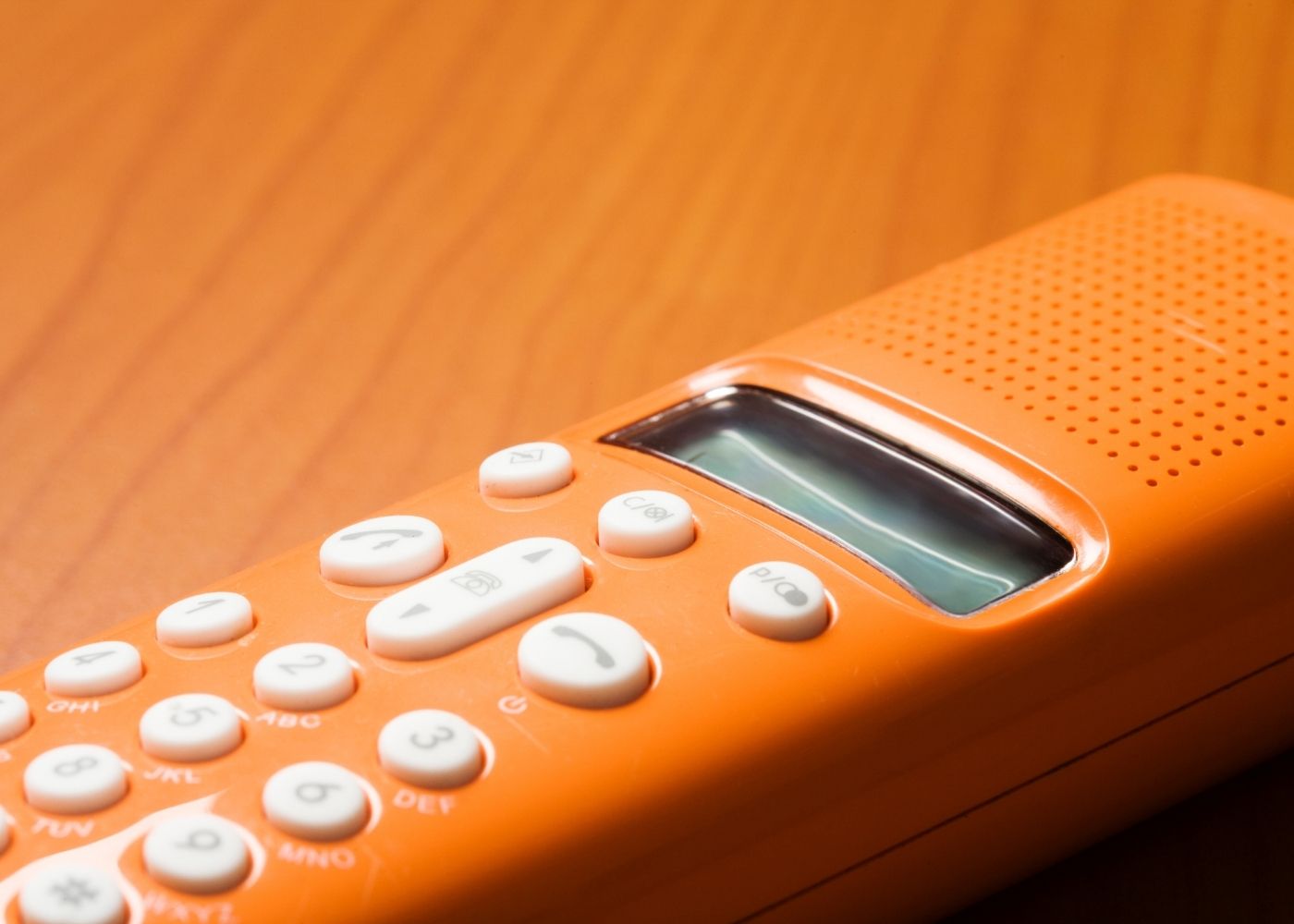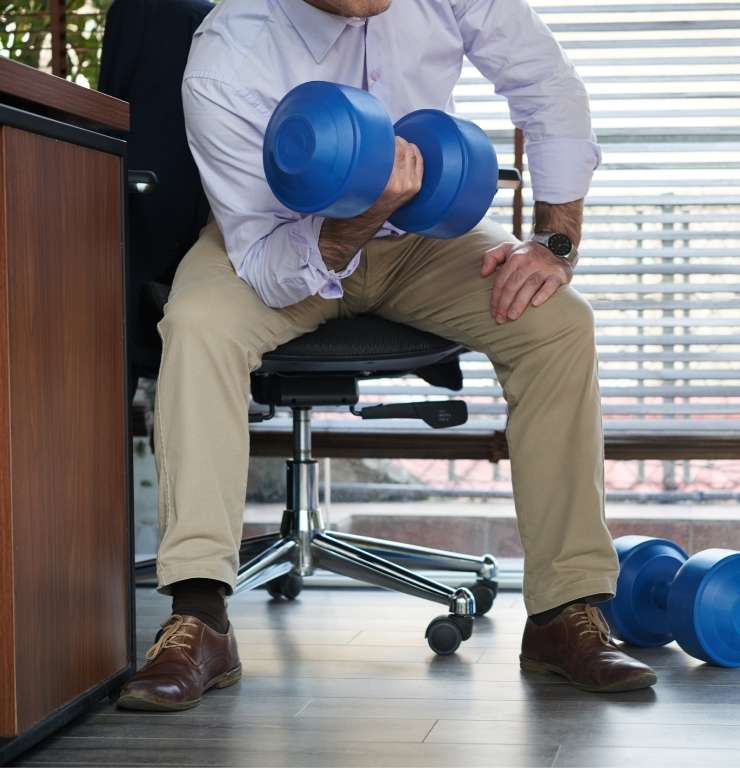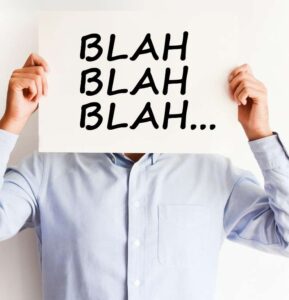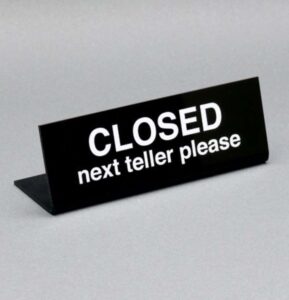
Phone skills- for when texts or e-mails won’t get the job done
M
y new headset for my landline finally arrived, after twice receiving headsets for cell and computer pairings. Audio quality is essential for my coaching calls, when I need to clearly hear someone, rather than see them.
Phone skills are important in business, when texts or e-mails won’t get the job done. It’s both what you say and how you say it that sends a message. Here are a few tips to get the best mileage out of your time on a call:
- Stand rather than sit; you’ll get better vocal production out of yourself, and you’re not tethered to one place (I like to walk around and talk with my hands on calls)
- Make sure that you know where the mic’s sweet spot is, and adjust it accordingly
- Never eat or drink while on a call
And if you’re using your cell phone, get a headset that pairs with it so you can be free to move around or take notes.

You don’t get rid of fright, You manage it!
Recently my colleague Tina Larsson asked how to get rid of stage fright. My answer is you don’t get rid of it, but you learn how to manage it. Here are some tips for wrangling that energy to your benefit:
- Be prepared. That’s going to do the most for your confidence. Knowing how to prepare is something I find most people are fuzzy on, so I’ll delve into that another day.
- Limit your caffeine and sugar intake on the day you present, so you don’t get an adrenaline spike mixing with a sugar spike.
- Visualize yourself delivering your message: strong, confident & having fun.
- Have a mantra at hand (in mind), to inspire you to a better performance.
- Drink plenty of water, which is the speaker’s drink of choice. Not carbonated or cold water though, cold chills your voice cords which can send your pitch up.

Managing Stage Fright
Plenty of people, myself included, have experienced fear before getting in front of an audience.
“You manage your emotions or your emotions will manage you.” John Wooden.
“You manage your stage fright, or your stage fright will manage you.” Katie Karlovitz.
It’s normal and it’s also manageable. The first thing is to accept and expect that you’re going to have some respiratory changes- quickening heart rate, dry mouth, slight shaking etc. Here’s what you do:
- Get your breath under control with deep breaths from the diaphragm; once that’s under control the rest of your body will start to settle down and relax.
- Sip room temp water to stay hydrated; ice water only makes your vocal chords constrict and makes your pitch go up.
- Limit your caffeine so it’s not mixing in with your adrenaline and causing energy spikes.
- I’ve experimented with Bach Rescue Remedies, herbal teas and also visualizations.
- DO NOT drink alcohol or take sedatives to blunt the nerves as they will affect your motor control and send the wrong message.
There’s nothing worse than the terror of being in front of an audience and feeling helpless and out of control. Stress tests have clinically shown that the fear of going on stage equals the fear of going into battle, which explains the “fight or flight” response that so often kicks in before giving a speech. It’s time to confront this head on, because too many good people are being silent when they should be speaking up.

Simplify, Simplify
T
he other day I wanted to hear my friend guesting on a podcast, but the host was such a gas-bag that I had to stop without getting to hear her. He seemed to think he was the Charles Dickens of podcasts, getting paid by the word.
After five long and boring minutes of him talking about himself, and no way to skip ahead in the recording, I gave up. This is what I call “audience abuse” and it should be illegal.
One of the cardinal rules when speaking, whether in person, on camera or other platform, is to get to the point as soon as possible. It will make life much more pleasant for all concerned.
This is definitely something I’ve noticed a lot more since we’ve all been forced onto Zoom in this past year. Some people seem to think that because we have nowhere to go that we must also have all day. Not so! Preamble that rambles is not the way to build momentum, and waiting through several minutes of filler to hopefully get to the meat of the matter is tiring and vexing.
If you’re fortunate enough to have an audience, take care of them. Be forthright, succinct and show them you respect their time.

Clutter; the creativity killer
C
lutter is a creativity killer, sucking up the energy needed to think clearly. I once had a client who had great views of Rockefeller Plaza but his office was so messy that you couldn’t see a thing. We spent hours clearing and organizing, all in order to help him think. It worked wonders.

Clutter can also creep into conversation and presentations, which is equally enervating. Filler words and phrases, cliches and general lack of concision will leave your listeners feeling over-fed and under-nourished.
Papers, piles and more piles of papers. The bane of my existence and clashing with my love of trees, I hate these necessary nuisances. My solution was to buy a label maker, which let me make beautiful, clear labels on my files, and made filing a fun thing instead of a drag.
Your office should be a place for work only and unnecessary or irrelevant items, such as sports equipment, make-up, and food do not belong in there. Get rid of them-your office isn’t a catch-all for the rest of your life.

How is your office looking today? How are you sounding in conversation? It’s time to streamline, and get lean and mean.

“You’re not really drunk until you are speaking fluent Ozzy Osbourne”
OK
, a quick shout out to all the people who have asked me if it’s OK to have a drink to calm down before giving a speech: the answer is NO.
The reason: you want your mind alert and in the flow. A drink will impede this and muddy your message.
Instead, experiment with organic methods which reduce and limit feelings of anxiety.
1) Chamomile tea, or any herbals meant for relaxing.
2) Bach Rescue Remedy- they have tinctures that work for various types of energy issues.
3) Relaxation/visualization exercise of yourself, standing in front of your audience, and speaking to them in a calm, commanding tone.
Drinking is never a good way to prepare for speaking in public. Your speech, your reflexes and your mental acuity all get involved. Think about how you want your audience to see you.
Let them see you shining your light, in all its undiminished strength and glory…then you can have that celebratory drink!

Networking Turn-Offs
“
“Networking is an essential part of building wealth.” Armstrong Williams
BC (before Covid) I used to attend a fair number of networking events. There were fabulous breakfasts at Morgan Stanley (thank you Sarah Beane Ricca CFP®, CDFA®, lunches, dinners, cocktail parties, boat trips etc. I learned a lot about networking, and how to be strategic with the events and connections I made. I also observed a few obvious errors in etiquette. Are you committing any of them?

1.Rattling on and on is the number one offending behavior. This isn’t the place for giving your elevator pitch, yet that’s exactly what several people were doing. Or else they were launching into long stories and monologues, never coming up for air. Trying to sell someone something during your first conversation is like planning your wedding during a first date. Don’t do it, and don’t let others do it to you. The fix: listen more than you talk, ask questions and be present.
2.Scanning the room while having a conversation with someone is just plain rude. And apparently it happens to the best of us-this from Richard Branson, of all people: “I sometimes come across people in business, especially if they have been fortunate enough to have some success, that are very fond of their own voices. After saying their piece, they visibly switch off from what others are saying, offering a perfunctory nod or fiddling with their phone, rather than making eye contact and really engaging. Conversely, the most successful entrepreneurs I know all have excellent listening skills in common.”


3.Making little or no effort to engage in conversation, which is the opposite of number 1. If you find yourself getting nowhere fast with someone, move on. If someone isn’t willing or able to meet you half-way in small talk, you don’t want to be doing business with them anyway. And don’t feel that you have to come up with an excuse for breaking away; simply say “Good to meet you.”
When the time comes (and it will) to return to live events, things will have changed and we’ll need to adjust. My best guess: we’ll need to dust off our business cards, wear what are called “power colors” in order to stand out visually, and pick up the phone to follow up. If your event has a speaker, always ask a question or two- again it allows you to stand out, and be heard.

Pick It Up (a Notch)
T
his week’s homework in my Client Communications class was the cause of much wincing and discomfort. The dreaded assignment was to record themselves leaving three different voice messages to potential clients, colleagues etc. You’d have thought I asked them to recite their most painful memories.
Many said that they don’t like the sound of their voice, which is common, and if you Google it you’ll learn the science behind this. But the fact is, phone skills are still vital to conducting business…texting and emailing alone won’t get the job done. You have to be able to speak with confidence and conviction when you’re having business conversations.
Young people are growing up digitally and not learning the basics of talking on the phone. Oh, the irony…when I was growing up parents everywhere complained about how much time their children spent on the phone. For my sixteenth birthday I was given my own phone line and number, and spent hours on it.
If your own phone skills are weak or non-existent, I have one piece of advice for you: start slow and easy by making a few phone calls. Low-stakes calls at first, to help ease you in to the practice. And if you don’t have a headset, they make a huge difference in comfort while you’re on the call so think about getting one. When I’m on a coaching call, I have the freedom to walk around or sit and take notes and I don’t lose any energy trying to manage the phone itself.

Once you start, you will certainly experience the benefits of a call…you get a lot more information when you hear not just what the other person is saying, but the all-important how they’re saying it is what really informs.

Enough With the Phony Familiarity
T
rends in business communication shift with the times, as they should.
During my early days as a public speaking coach, the fad (never a good one) was to “Tell them what you’re going to tell them, tell them, and then tell them what you told them!” Pure bunk and fortunately no longer in vogue.
Being under lock down has had its own influence on how we talk shop, some good and some extremely vexing. I’ve been able to coach online classes on how to Upgrade Presenting Skills for Zoom, and the results are deeply gratifying- formerly shy, introverted senior level people have absolutely bloomed. Confidence is shored up. Meetings become engaging once people understand how to speak on/camera.
Now I’m seeing an annoying trend and to anyone out there who thinks it’s clever, think again. It’s e-mail abuse, in the form of familiarity:
“Hi Katie, I hope you’re doing alright and are in a good place…are you? You’ve probably noticed from my emails lately that…” These are from people I’ve either never heard from, or else haven’t heard from in a dozen years or more. So no, I haven’t noticed anything lately and this approach guarantees that I never will again.
Please don’t make that mistake out of sheer desperation. Or another type- my husband got a jocular work email, much the same fake friendly but with the added touch of the sender in a highly inappropriate outfit and pose.

Enough With Slap-Happy Webinar Hosts and Guests
M
y husband wonders why I watch so many webinars, often to complain about them later. I watch to try to learn new stuff, but the tone of many makes them irritatingly unwatchable.
When was it decided that when you’re on/camera, you have to present a hyped-up, big-smiling, wildly excited persona? We’re not selling used cars here, yet mute the sound and it sure looks like it. How many times can we hear “Awesome!!!” “Amazing!” “Great question!” “I’m so excited about this webinar!” without running out of the room in despair?
It can be exhausting just trying to figure out what they’re actually talking about, which too often is precious little. After all that fuss.
Please take a moment to consider who you really are and how to project that on/camera, rather than copying what you see others doing. One Gary V is enough. A few tips on being authentic on/camera:
- Be prepared. If you’re working with scripted material, rehearse it until you’re comfortable and know the flow of it.
- If it’s improvised content, know who’s involved and what the overall plan or goals are.
- Cool it on the caffeine. When we’re “on” we naturally get a spike in adrenaline, so we don’t need to add too much caffeine into the mix. Try herbal tea instead.
In the past week I’ve watched maybe eight webinars and of them, only one got it right. Three women shared the content seamlessly, all were well-spoken and prepared and none felt the need to gasp about how happy they were.

The result? An excellent listening experience for me, on the subject of mind set and how to manage it. Informative, uplifting and thank you to Judy Goss of What Women Want for hosting it.
